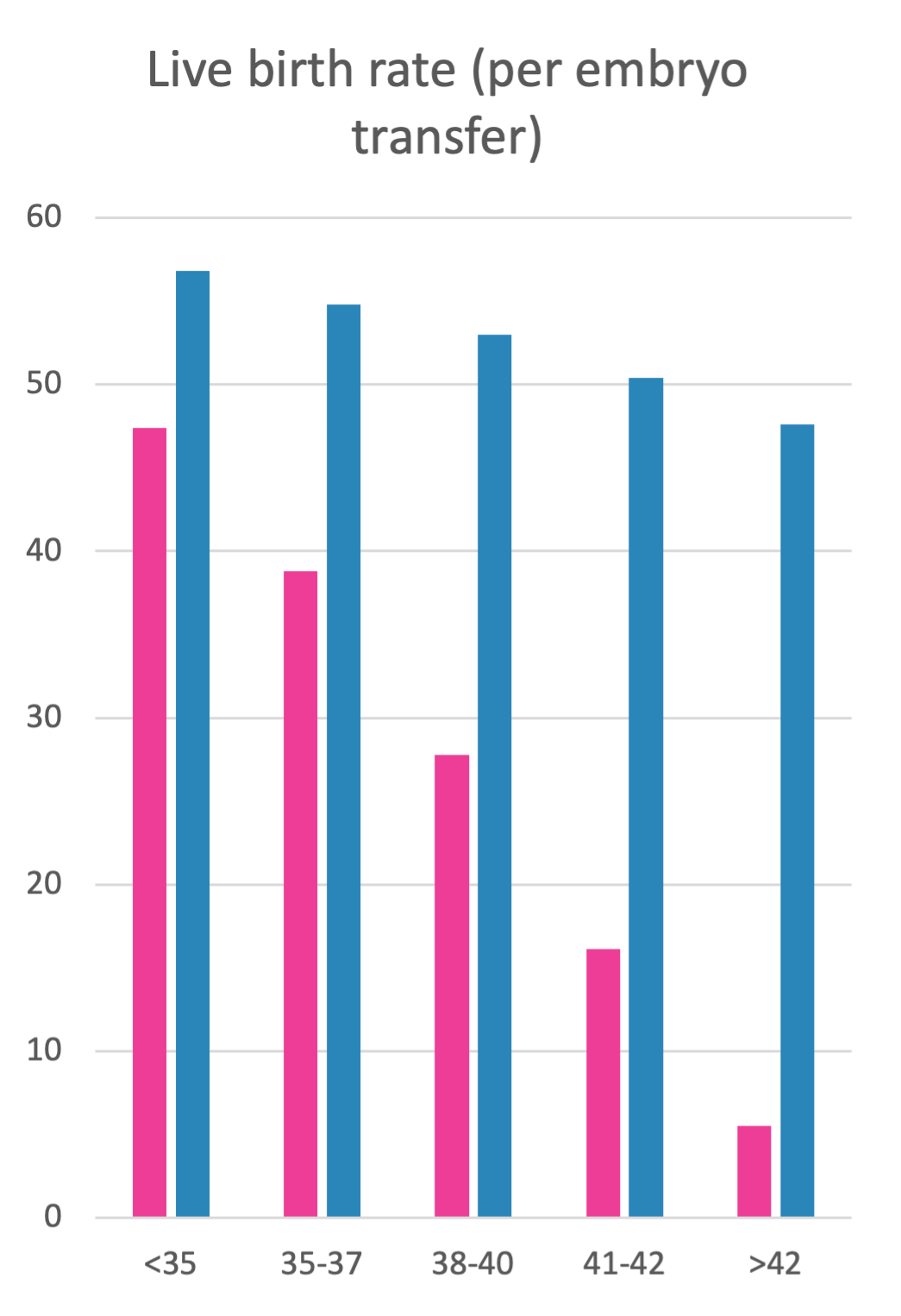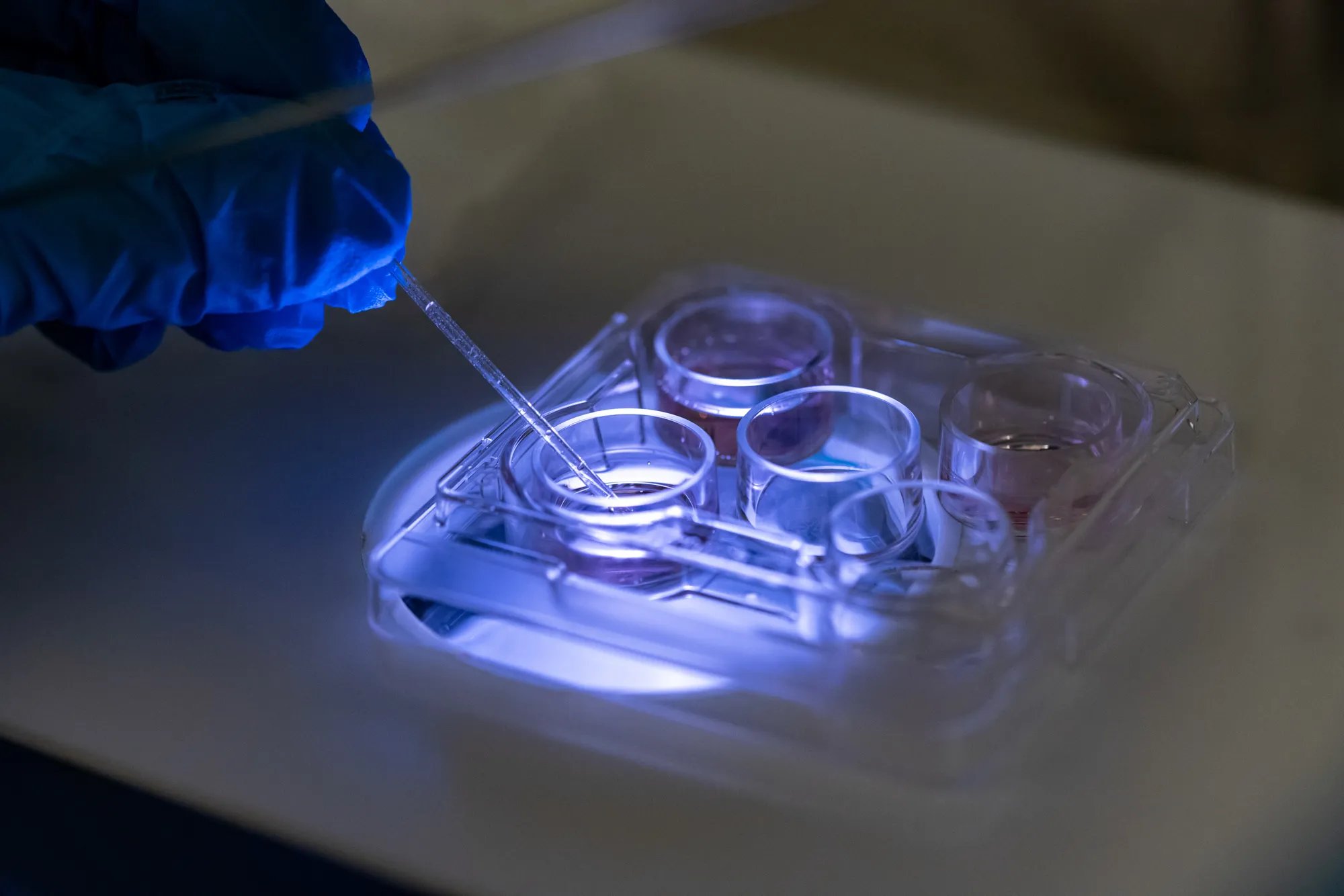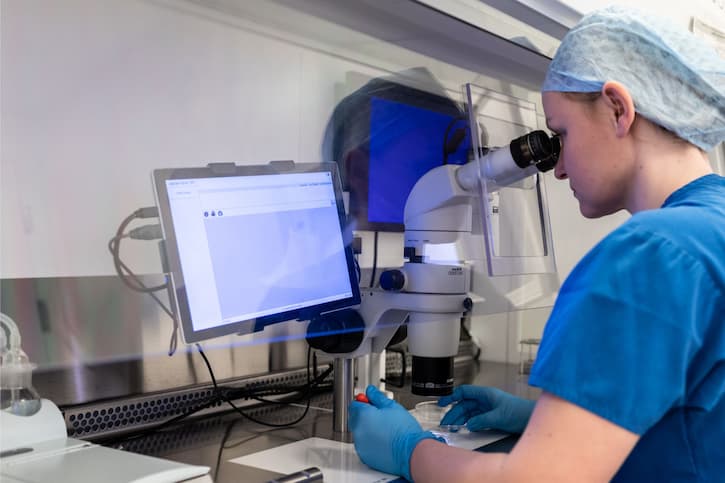Preimplantation Genetic Testing (PGT) for your embryos
Increase your chances of a healthy pregnancy by genetically testing your embryos before implantation in your womb.
Introduction
What is genetic testing for?
There are a number of reasons why your doctor may recommend genetically testing your embryos – from maternal age to having a family history of a genetic condition – and PGT is classified into two broad categories support each of them:
- Screening for “normal” embryos, this is called Preimplantation Genetic Testing for Aneuploidy (PGT-A)
- Testing for specific genetic conditions, this is referred to as Preimplantation Genetic Testing for Structural Rearrangements (PGT-SR) or Monogenetic diseases (PGT-M)
Who’s it for
You might want to use PGT-A if…
- You wish to maximise your chances of a healthy pregnancy
- You want to reduce your time to a healthy pregnancy
- You have had miscarriages
You might want to use PGT-SR or PGT-M if…
- You’ve had one or more terminations because your baby had a genetic condition
- You already have a child with a serious genetic condition
- You have a family history of a serious genetic condition
Success rates
71%
With PGT-A
60%
Without PGT-A

Triple your chances of success with PGT-A
Our research into eggs collections, embryo transfers and miscarriages shows that successful pregnancies double when PGTa testing has been applied. In particular with women over the age of 38 years.
We’ve helped many partners, individuals and LBGTQ+ couples start their family since we opened our clinic in 2010 and we have some of the highest success rates for IVF in the country.


Please note: the data shown in this graph are from the American Society for Assisted Reproductive Technology (SART) [Source: SART 2016]
PGT-A and Pregnancy Success

The genetic testing process and what to expect
Step 1: Talk to your doctor

Step 2: Embryo creation and testing

Step 3: Genetic analysis
.jpg?width=725&height=483&name=Blastocyst%20on%20screen%20(2).jpg)
IVF with PGT-A process

.jpg?width=1080&height=1080&name=Insta%20New%20Baby%20Template%20(19).jpg)
